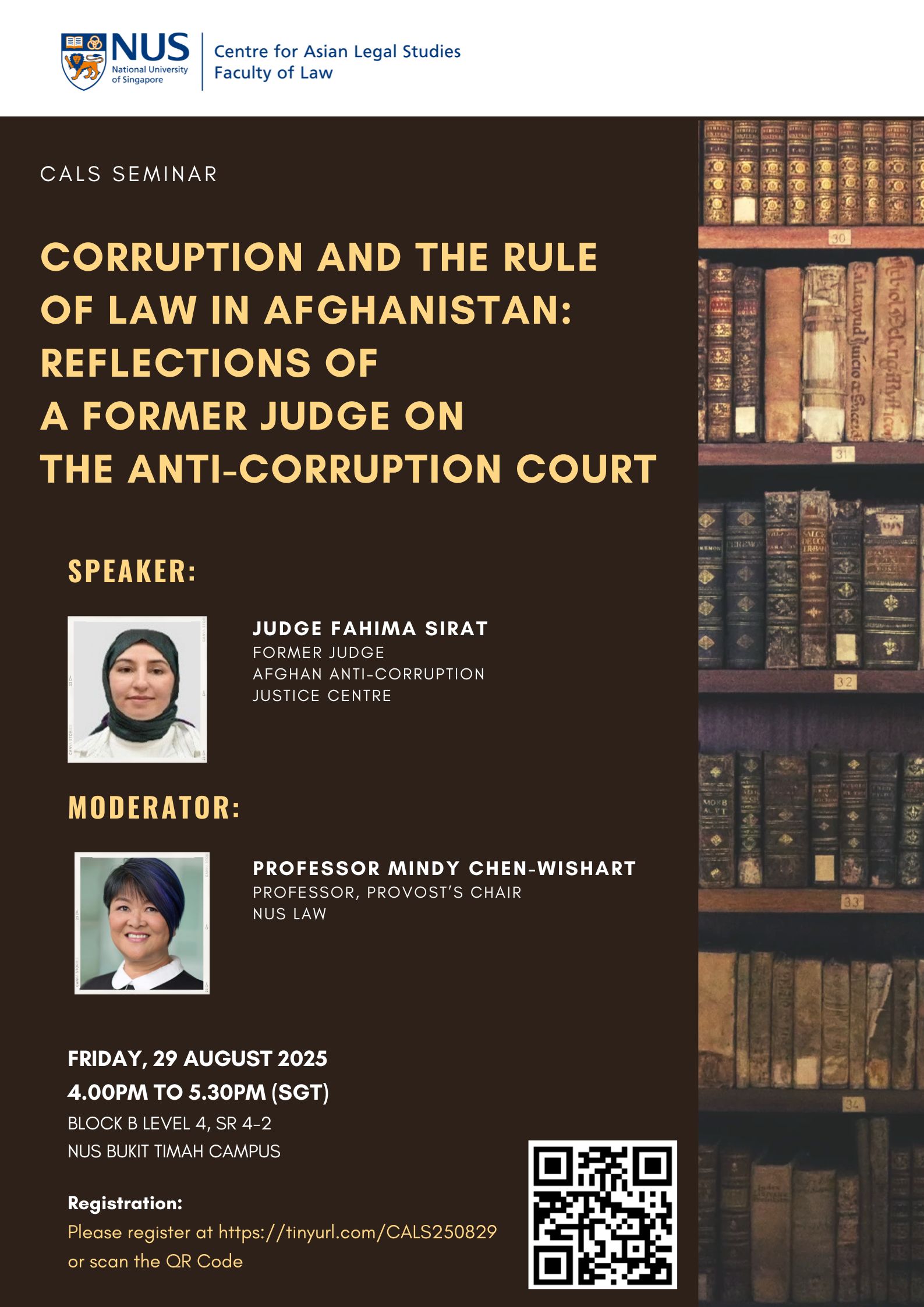Description
About the Event
In this seminar, Judge Fahima Sirat, who is a former judge from the Anti-Corruption Justice Centre in Afghanistan will describe the Centre's composition, challenges, case law examples, and its role in combating corruption in the nation. Anti-Corruption initiatives under the Republic and the current Taliban de facto government will be compared, with a focus on significant distinctions in the legal framework and transparency.
About the Speaker
Fahima Sirat served as a judge in the Special Anti-Corruption Serious Crime Court at the Anti-Corruption Justice Centre (ACJC), presiding over cases involving senior officials. Before that, she worked as an Appellate Judge in the Criminal Division of the Court of Appeals and as a judge in the Primary Court’s Criminal Division, adjudicating cases of murder, rape, robbery, and burglary.
Before that, Fahima was a reporter for senior judges in the Supreme Court’s Criminal Division, preparing case reports. She holds a Master’s degree in Criminal Law and Criminology from the Azad Islamic University of Iran (Kabul branch) and a Bachelor’s degree from Kabul University, along with completing a two-year Judicial Practicum Course.
Her international experience includes participating in the 22nd UNAFEI program on highprofile corruption cases in Japan in 2019, where she presented a paper on Afghan law. She has also undertaken advocacy training with the Legal Aid Organization of Afghanistan. She was a visiting scholar at the University of Oxford's Faculty of Law.
Currently based in the UK, Fahima works at a law Firm in London and is pursuing an MA at the University of Law London. Her current research focuses on De Jure and Defacto Elimination of Violence Against Women in Afghanistan to the Realities Under the Taliban Regime, examining the intersection of formal legal frameworks and real enforcement.
Terms and Conditions
By filling up this Registration Form,
i. Participants agree and consent that their personal data provided in this form may be collected, used, processed, and disclosed by NUS and the event organisers for the purposes of processing their registration, in accordance with the Personal Data Protection Act 2012 and all subsidiary legislation related thereto.
In respect to disclosure, NUS may disclose participants' personal data to third parties (which may be in or outside of Singapore) where necessary for such purposes.
ii. Participants will also consent to NUS taking photographs and videos for the purposes of event reporting, marketing, publicity , and media/social media. Participants further consent to NUS disclosing suckh photographs abnd videos to thuird party media entities (whether in Singapore or otherwise) for publicity purposes, and NUS may identify them by name.
iii. NUS and designated event organisers reserve the right to alter any of the programme or other arrangements for this event, including cancellation or postponement iof the event, should circumstances so warrant.
Date and Time
Friday, 29th August 2025 4:00PM GMT+08:00
to
Friday, 29th August 2025 5:30PM GMT+08:00
Organisation
Faculty of Law
Location
Block B Level 4, Seminar Room (SR) 4-2, NUS Bukit Timah Campus





